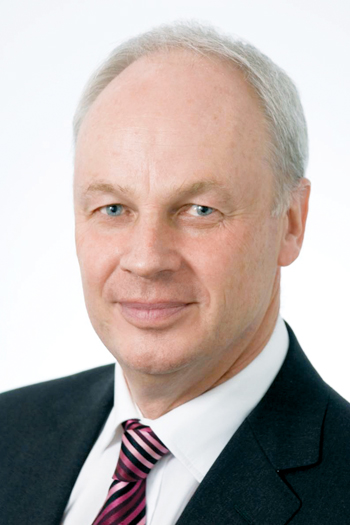
Some of the Middle East’s most influential tourism leaders have set out their destination branding strategies that tackle the new era of consumer empowerment and social media-led transparency.
High-profile tourism heavyweights from Jordan, Egypt and Ras Al Khaimah joined more than 60 tourism ministers, as well as leaders from Facebook, Expedia, Melia Hotels, Eurostar and the World Travel and Tourism Council (WTTC) at the 2015 UNWTO & WTM Ministers Summit, which was entitled Destination Branding: new challenges in a changing market.SOCIAL MEDIAThe conversation, which took place during World Travel Market (WTM) at ExCeL London on November 3, discussed how destination marketing was now the prisoner of customer feedback and social media, forcing tourism leaders to re-evaluate how they brand their countries and interact with travellers.'Destination marketing used to be a very simple job; you could set out your brand and tell a series of lies and no one would know, but with social media, everything is transparent,' said WTTC president and CEO David Scowsill.
 |
Scowsill … travellers expect more |
JORDANThe summit’s Middle East contingent argued they were authentic and experience driven, but their brands were hindered by negative perceptions of the region.'We have been branded as the troubled region and it is difficult to sell a country located in a troubled region,' conceded Jordan’s Minister of Antiquities, Nayef Al-Fayez'We need to differentiate Jordan to make sure people know it’s safe.'His comments followed a Jordan Tourism Board (JTB) press conference at WTM where Al-Fayez hailed the kingdom the 'Switzerland of the Middle East' – a safe place to visit for tourists despite the on-going unrest in neighbouring countries.'Jordan has always been a calm and quiet oasis offering authentic experiences and genuine hospitality,' he said.Another summit panellist, Noah Tratt, the global senior vice president of Expedia Inc said destination’s like Jordan should highlight individual tourism attractions that appeared on the buckets lists of people the world over.'If you have an asset like Petra, which is a place travellers aspire to visit, you can use that as an anchor to sell your destination,' he said.
RAS AL KHAIMAHRas Al Khaimah Tourism Development Authority (RAKTDA) CEO Haitham Mattar said its anchor was 'the mountains'.'It’s a challenge [to market RAK) because we compete against destinations like Dubai and we all (the UAE destinations) offer culture, heritage and adventure,' he conceded.'Dubai didn’t have an anchor, so it built one – the Burj Khalifa. Everyone needs an anchor. You then need to sell the experience and the connection with the local people.'When the conversation turned to destinations initiating one-to-one conversations with travellers, Facebook’s global vertical marketing/strategy lead, Lee McCabe, said: 'We are in an era that’s a marketer’s dream. We spend 25 per cent of our time on mobile devices so destinations and tourism brands are able to send us personalised messages.'
EGYPT AND QATARThis method of engagement could also be used during times of crisis, according to Egypt’s Tourism Minister Hisham Zazou.'We believe we have to combat the negative news with good news,' he said.WTM saw a number of destinations use the show as a platform to unveil new branding strategies.The Qatar Tourism Authority (QTA) revealed its new brand, designed to position the country as a premium tourist destination offering authentic experiences that are rooted in the nation’s culture and heritage.The new brand is distinctive and visually striking, using bespoke-designed typography that combines Arabic and English elements. The Arabic element of the word mark was created by renowned Qatari calligraphist Ali Hassan.'The unveiling of Qatar’s first destination brand marks the beginning of a new phase in our journey towards achieving the vision for Qatar, to become a world class hub with deep cultural roots,' said QTA chairman Issa bin Mohamed Al Mohannadi.'In launching this brand, which is the first to represent Qatar as a destination, and by channelling multiple characteristics of the nation’s persona, hopes, actions and vision, our efforts to promote the country and pique interest from world travellers, gain new strength and cohesion.'
By Gemma Greenwood
